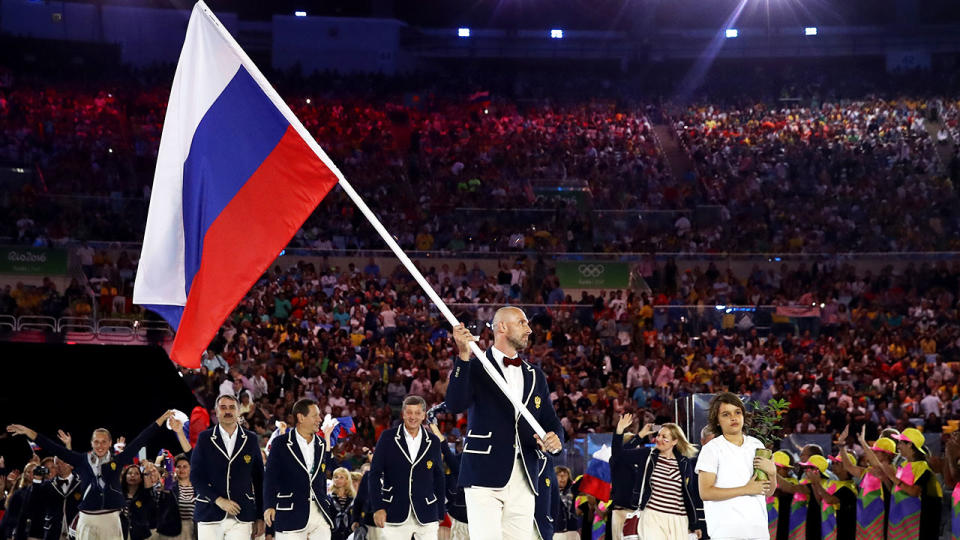'Anti-Russian hysteria': World reacts to four-year doping ban
Australia’s federal government has backed the decision of the World Anti-Doping Agency (WADA) to ban Russia from competing at the Tokyo Olympics and other sporting world championships.
The decision was taken to impose a four-year suspension after Russian Anti-Doping Agency (RUSADA) officials were found to have tampered with doping-related laboratory data.
It will see Russia barred from the 2020 Games in Tokyo, the 2022 Beijing Winter Olympics and the 2022 FIFA World Cup in Qatar.
The Australian Government, as Oceania's representative on WADA's executive committee voted to support the sanctions.
"The WADA investigations revealed a clear and calculated intent to covertly manipulate data within the laboratory information management system, hide evidence and falsely blame others for it," a statement read.

"It follows earlier revelations of the Russian state-sponsored doping program.
"Our athletes deserve to compete on a fair and even playing field both domestically and internationally.
"The Australian Government will continue to advocate for clean and fair competition."
The UK Anti-Doping (Ukad) chief executive Nicole Sapstead said Russia’s ban was the "only possible outcome" to maintain the world’s faith in upholding clean competition.
Russia #WADA ban includes #Olympics and #WorldChampionships - #Reedie pic.twitter.com/0rWcDmEAwN
— Ruptly (@Ruptly) December 9, 2019
However, Travis Tygart, chief executive of the US Anti-Doping Agency, said allowing Russian athletes to compete under a neutral flag is a "devastating blow" to clean athletes.
"The reaction by all those who value sport should be nothing short of a revolt against this broken system to force reform," he said, adding that it was "another horrendous Groundhog Day of Russian corruption and domination".
"Wada promised the world back in 2018 that if Russia failed yet again to live up to its agreements, it would use the toughest sanction under the rules. Yet, here we go again; Wada says one thing and does something entirely different."
‘Anti-Russian hysteria’
Meanwhile, Russian Prime Minister Dmitry Medvedev has demanded an appeal against the decision.
"Russian organisations that deal with these issues should consider challenging this decision," Medvedev said in comments carried by state news agency TASS.
While Medvedev admitted to "considerable problems" with doping in Russia, the ban pertains to "athletes who have already been punished." Such a far-reaching punishment is the result of "anti-Russian hysteria," he said.

RUSADA's deputy director, Margarita Pakhnotskaya, shrugged off the ban as "expected."
"And that it was also a consensus, I am also not surprised," she said, adding that the WADA committee did not in any way express support for Russia.
Another influential lawmaker, the deputy speaker of Russia's lower house of parliament, Pyotr Tolstoy, condemned the ban as an anti-Russian campaign to remove competition in international sports.
"This is a means of pushing Russian competitors out of international sports," Tolstoy said.
"We need to reinstate our rights, annul [this decision] and renegotiate."
With agencies